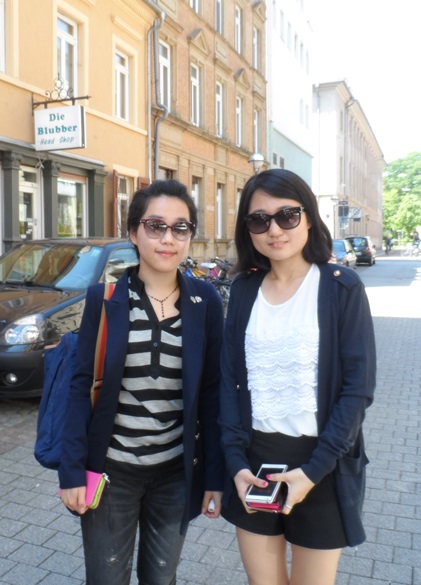KAIST has many partner universities around the globe where our students go to for exchange programs. Karlsruhe is a city in southwest Germany that has many renowned universities, and among them is the prestigious Karlsruhe Institute of Technology (KIT), a research-oriented school similar to KAIST. The KAIST Herald met with two exchange students from KAIST to hear more about the work and life at KIT.

Could you briefly introduce yourselves?
[Kim] Hi, my name is Hyeon-Yeong Kim and I’m majoring in the Department of Biological Sciences.
[Cheon] My name is GoWoon Cheon and I’m majoring in the Department of Physics. We are both in the entering class of 2010.
Why did you choose to come to KIT for the student exchange program?
[Kim] The reason why I decided to go on an exchange program was to travel around Europe. If you look at Karlsruhe on the map, you can see that it is in the center of Europe, so that’s why I came here. I thought being in Karlsruhe would be make traveling to other cities more convenient.
[Cheon] First, I chose to come to Germany because I heard that the people here speak English very well. When I was applying for an exchange, I knew that I wanted to extend my stay from just one semester to a full year, and KIT was one the universities that allowed me to do that. The school also has a good physics program.
How do you think the learning environment is different at KIT from that of KAIST?
[Kim] For me, there were no English courses offered in my department at the bachelor level, so I took master’s degree courses. Here, a month is provided for each course, and you go to lectures for that course all week for the entire month. During the first week, you listen to lectures on the actual material of the course, and for the rest of the three weeks, you work on a group project. At the end you give a presentation and submit a report on the outcomes of your project. Apparently KIT students are required to a course outside their majors, so even though the course I took was a neurobiology one, there were master’s degree students majoring in electrical engineering, computer science, etc. taking the course and participating in group projects. I think this kind of learning process is very unique - something that KAIST students don’t have the opportunity to experience.
[Cheon] At KIT, at least in the engineering departments, there are no attendance checks and graded homework assignments. The only factor that influences your grade for a course is the final exam, so you just need to work hard during exam week to get a decent grade. However, in the Department of Physics, the homework is given out on a weekly basis and if you don’t get over 50 percent on them, you are not allowed to take the final exam and get an automatic F. For one course that I took, there were 150 students in total but only 66 received a passing grade. So I think the workload and academic atmosphere vary depending on the department.
What is the student life like at KIT? How are the student facilities?
[Kim] KIT gives you a free transportation card for students for their first semesters here. The tram tickets are very expensive, so this card saves you a lot of money for traveling within Karlsruhe and to near-by cities. For dormitories, unlike KAIST most dorms have single rooms with shared kitchens, and they are located outside the campus. The facilities are decent, but the monthly fee for the dormitories here is worth the amount you pay for the whole semester at KAIST, so it’s quite expensive.
[Cheon] I also like the library system here. If you have a book that you want to read, then you can just make a request on the library system instead of finding it yourself, and it will be delivered within an hour to a pick-up area inside the library. There are also well-organized locker systems installed around the campus that students can use for free.
Do you have any last words you would like to say to the readers?
[Kim] KIT is a campus that embraces nature. There are a lot of parks within it; even my dormitory is located in the middle of a forest. It is really beautiful, and I think I’ll really miss this aspect about KIT.
[Cheon] For students planning on coming to KIT or another university in Germany for a student exchange program, I’d advise them to study a bit of German before coming. Even though Germans are good at speaking English, it’s always nice to know a few phrases you can use here and there to communicate more easily with the locals.

